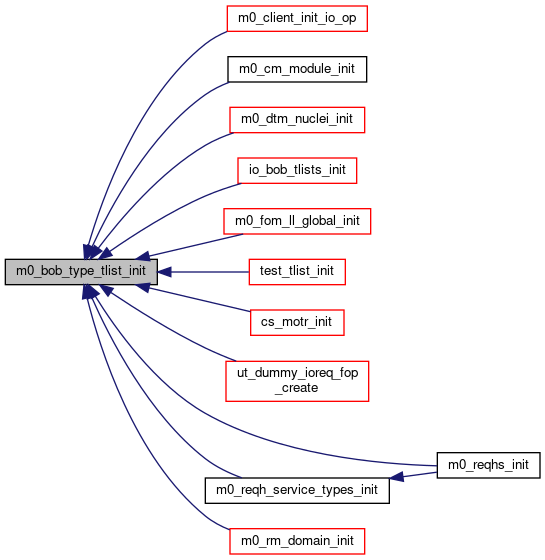Branded object (bob) module provides support for a simple run-time type identification.
A branded object is any memory structure containing magic field at a known offset. A branded object type (m0_bob_type) specifies the offset and the required magic value field, together with an optional check function. m0_bob_check() function returns true iff the memory structure given to it as a parameter has the required magic value and satisfies the optional check.
For flexibility branded objects are not represented by a special data-type. Instead m0_bob_check() takes a void pointer.
A couple of helper functions are provided to initialize m0_bob_type:
- m0_bob_type_tlist_init(): used when branded object is used as a typed
list link, @see lib/tlist.h.
- m0_xcode_bob_type_init(): used in case where branded object type has an
xcode representation, @see xcode/xcode.h. This function is defined in
xcode.h to avoid introducing dependencies.
A user is explicitly allowed to initialize m0_bob_type instance manually and to set up the optional check function (m0_bob_type::bt_check()) either before or after using these helpers.
◆ bob_of
Value:({ \
void *__ptr = (
void *)(
ptr); \
" check: %i.", (
bt)->bt_name, #
field, __ptr, __amb, #
type, \
*((uint64_t *)(((
void *)__amb) + (
bt)->bt_magix_offset)), \
(
bt)->bt_check !=
NULL ? (
bt)->bt_check(__amb) : -1); \
__amb; \
})
static void ptr(struct m0_addb2__context *ctx, const uint64_t *v, char *buf)
#define container_of(ptr, type, member)
static int field(struct ff2c_context *ctx, struct ff2c_term *term)
#define M0_ASSERT_INFO(cond, fmt,...)
M0_INTERNAL bool m0_bob_check(const struct m0_bob_type *bt, const void *bob)
A safer version of container_of().
Given a pointer (ptr) returns an ambient object of given type of which ptr is a field. Ambient object has bob type "bt".
Definition at line 140 of file bob.h.
◆ M0_BOB_DECLARE
| #define M0_BOB_DECLARE |
( |
|
scope, |
|
|
|
type |
|
) |
| |
Value:scope
void type ## _bob_init(
struct type *bob); \
scope
void type ## _bob_fini(
struct type *bob); \
scope
bool type ## _bob_check(
const struct type *bob)
Definition at line 129 of file bob.h.
◆ M0_BOB_DEFINE
| #define M0_BOB_DEFINE |
( |
|
scope, |
|
|
|
bob_type, |
|
|
|
type |
|
) |
| |
Value:scope
void type ## _bob_init(
struct type *bob) \
{ \
m0_bob_init(bob_type, bob); \
} \
\
scope
void type ## _bob_fini(
struct type *bob) \
{ \
m0_bob_fini(bob_type, bob); \
} \
\
{ \
} \
\
struct __ ##
type ## _semicolon_catcher
M0_INTERNAL bool m0_bob_check(const struct m0_bob_type *bt, const void *bob)
Produces a type-safe versions of m0_bob_init(), m0_bob_fini() and m0_bob_check(), taking branded object of a given type.
Definition at line 111 of file bob.h.
◆ MAGIX
| #define MAGIX |
( |
|
bt, |
|
|
|
bob |
|
) |
| ((uint64_t *)(bob + bt->bt_magix_offset)) |
Returns the address of the magic field.
Macro is used instead of inline function so that constness of the result depends on the constness of "bob" argument.
Definition at line 59 of file bob.c.
◆ bob_type_invariant()
| static bool bob_type_invariant |
( |
const struct m0_bob_type * |
bt | ) |
|
|
static |
Definition at line 34 of file bob.c.
◆ m0_bob_check()
| M0_INTERNAL bool m0_bob_check |
( |
const struct m0_bob_type * |
bt, |
|
|
const void * |
bob |
|
) |
| |
Returns true iff a branded object has the required magic value and check function, if any, returns true.
Definition at line 74 of file bob.c.
◆ m0_bob_fini()
| M0_INTERNAL void m0_bob_fini |
( |
const struct m0_bob_type * |
bt, |
|
|
void * |
bob |
|
) |
| |
Finalizes a branded object, by re-setting the magic field to 0.
Definition at line 68 of file bob.c.
◆ m0_bob_init()
| M0_INTERNAL void m0_bob_init |
( |
const struct m0_bob_type * |
bt, |
|
|
void * |
bob |
|
) |
| |
Initializes a branded object, by setting the magic field.
Definition at line 61 of file bob.c.
◆ m0_bob_type_tlist_init()
Partially initializes a branded object type from a typed list descriptor.
Definition at line 41 of file bob.c.
◆ M0_XCA_DOMAIN








